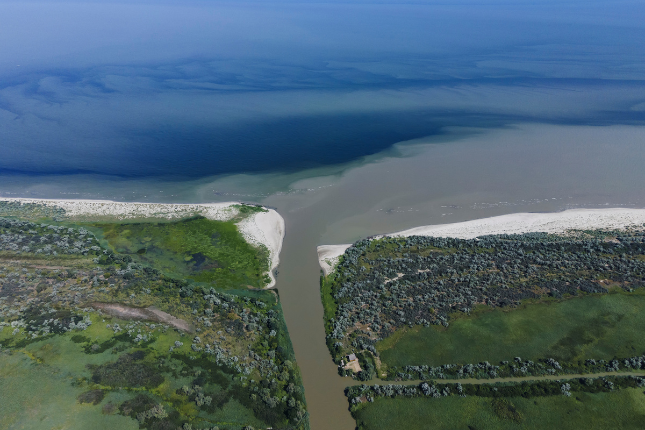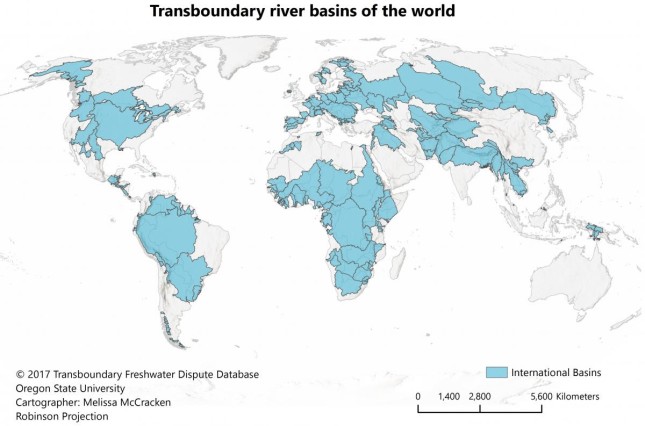-
Harnessing the Benefits of Water Cooperation in an Increasingly Complex World
›
In an era of apparent decline in international cooperation and rising crises, freshwater offers an area in which joint approaches remain absolutely essential—especially since water often transcends the boundaries of nation-states.
Cooperation has long been the preferred approach in dealing with water resources shared with neighboring countries. Since the first—and so far, only—water war in 2550 B.C.E., states have favored cooperative action over conflict to manage, protect, or develop our planet’s 313 transboundary surface water basins and 468 transboundary aquifers.
-
Tracking Conflict and Cooperation Over the World’s International Freshwater Resources
›Guest Contributor // March 20, 2023 // By Alexandra Caplan, Melissa McCracken, Susanne Schmeier, Zoe Rosenblum & Aaron Wolf
Waters that cross international political borders can drive the countries that share them to conflict—or encourage cooperation between them. Indeed, since the 1940s, overall trends point to a tendency for countries to cooperate over shared water resources, which stands in stark contrast to media portrayals of “water wars.”
Yet instances of conflict over water have increased slightly since 2000. Why? Most of them are fueled by water quantity disputes or the unilateral development of dams or other infrastructure. Institutions often play a key role in facilitating cooperation (and reducing conflict) over shared waters, but their growth and adoption have slowed over the last two to three decades.
Showing posts by Melissa McCracken.





